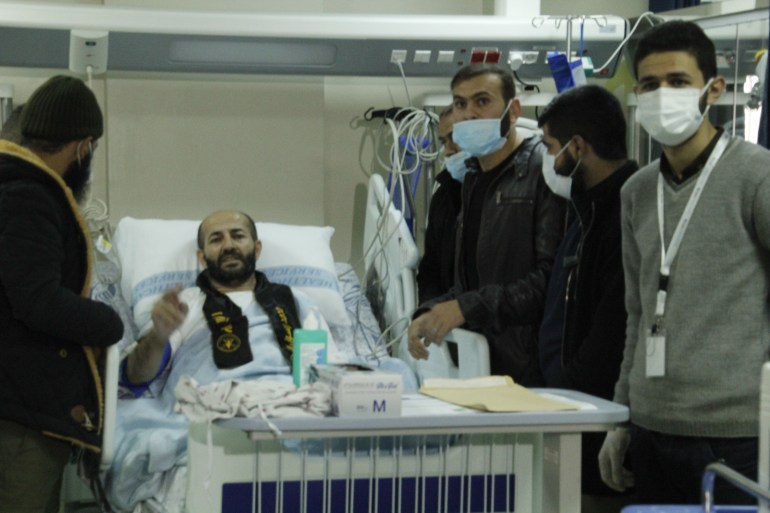"The Palestinian people will not be broken and will remain steadfast in the face of the occupation. The Palestinian people are all men."
These are brief words that Palestinian prisoner Maher Al-Akhras spoke in front of a crowd of journalists, summarizing the story of a prisoner and a captivity process that lasted 4 months, and a hunger strike known to be the longest that a Palestinian prisoner has ever fought.
During about 120 days in detention, the released prisoner Maher Al-Akhras went on hunger strike 103 days, and he announced that from the moment of his arrest from inside his home, and he spent his decision for several weeks inside the detention center, before the Israeli occupation authorities transferred him to Kaplan Hospital within the Green Line, after being unable to Deterred by all means of carrots and intimidation to end his strike.
From there, and from inside the intensive care room at Al-Najah Hospital, the mute prisoner spoke some words, in which he thanked all the Palestinians and "free people of the world" who showed solidarity with him. Then he continued by talking about his health, saying, "I am now unable to stand or walk on my feet." But my health is good. "
Words calmed down the journalists who gathered at the entrance to the room, but did not cure them;
The meeting will be expanded this evening and within a large reception at his home in his hometown of Silat al-Dhahr (in the northern West Bank).
Joy despite the pain
There, to the right of the mute prisoner, his wife Taghreed (Umm Islam) was standing and did not budge, sometimes holding his hand and the other wiping his head, as she had not left him for more than a month when the occupation allowed her and his family to visit him after his health deteriorated.
For a while, we were able to elicit some words from her about her condition now as she embraces him in his country and among his family, and she said, "My joy is priceless, and my feeling of extravagance is great," and she said that the words will be wider there in his village and home.
During about 120 days in detention, freed prisoner Maher Al-Akhras went on strike 103 days for food (Al-Jazeera)
On the same medical bed, the prisoner remained mute from the moment of his release, along with figures from the Palestinians of the occupied interior in 1948 and his wife, until his arrival at the Jabara Israeli checkpoint near the city of Tulkarm, and from there to the Najah Hospital in Nablus.
Upon his arrival at the hospital, many medical examinations were performed for the mute prisoner, and his relative, Bilal Dhiab, described his health condition as "difficult", as he was unable to move and walk on his feet.
The prisoners' message
Dhiab - who is also a released prisoner - told Al-Jazeera Net that, upon completion of the reception, which will be organized for the prisoner in his hometown, "Silat al-Dhahr," in front of his home, where he will meet his daughter, "Taqi";
Tomorrow he will return to continue his treatment - especially physical therapy - to walk again. ”He added,“ These treatments will not be short, but he will recover after them, God willing, because the disease is mostly caused by his long strike.
Regarding the message of the Akhras prisoner, the freed prisoner, Bassam Dhiab - who went on a hunger strike during his repeated arrests - said that the most important message sent by the prisoner Maher Al-Akhras is his call to the administrative prisoners specifically that "an open hunger strike is your weapon to gain your freedom and conquer the Israeli occupation."
Dhiab said - in his statement to Al-Jazeera Net - that the individual hunger strike launched by the "Empty Bowl Battle Bomber" Sheikh Khader Adnan 8 years ago, ending with the captive Maher Al-Akhras;
Evidence of the absolute rejection of the "unjust decision of the occupation" to continue arresting them in this way, which is the means of every prisoner who wants his freedom.
He stressed that the prisoners ’speech today will focus on exploiting the occupation and the Coronavirus epidemic, and using it to“ kill prisoners, ”especially sick prisoners, as is the case of Kamal Abu Wa'er, who was killed about two weeks ago in the occupation prisons,“ and this requires the prisoners to fight with their empty stomachs for victory over Their enemy. "

